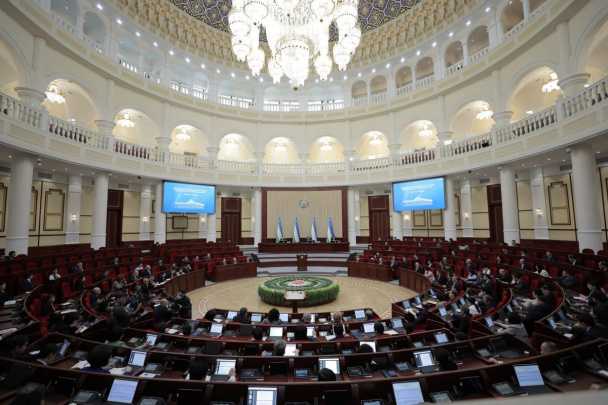Calls for death penalty reinstatement spark debate among Uzbekistan's lawmakers
Alisher Kodirov expressed his thoughts that the person who committed the atrocity of stabbing a three-year-old child in Tashkent should not be allowed to live. In response, Odiljon Tojiev noted that the state does not have the right to take a life it did not give.

Deputy Speaker of the Legislative Chamber of Oliy Majlis, Alisher Kodirov, hinted at the necessity of reinstating the death penalty in Uzbekistan. He commented on the case of the three-year-old child killed in Tashkent, asserting that the person who committed such brutality should not live.
Kodirov added that it is illogical to expect a criminal to become a different person while maintaining their health and feeding them at the expense of taxes.
"A crime is a crime, but a person who commits brutality against an innocent child should not live. Yesterday, a criminal who stabbed a young man 20 times and killed him was sentenced to 17 years in prison after expressing remorse in court. What will this 25-year-old creature return to society as at the age of 42? It is illogical to maintain the health and feed a criminal who has become animalistic at the expense of our taxes, waiting for them to become another person. Such people need to be cleaned from society! Should we turn a blind eye to the massacre of children and innocent civilians and adapt to the humanism lessons taught by those preaching humanity to the world? We must not forget that these creatures will serve as an example and mentor to future pro-creatures," he wrote.
Another Deputy Speaker of the Legislative Chamber of Oliy Majlis, Odiljon Tojiev, expressed his complete disagreement with this seemingly acceptable proposal and stated that those advocating for the reinstatement of the death penalty should be given a copy of the Constitution.
"The assertion that those who caused the death of an innocent child do not have the right to live is akin to saying 'the death penalty should be reinstated.' While this proposal may seem fair and acceptable at first glance, I completely disagree with it. Firstly, the death penalty could result in the complete loss of an innocent person's life due to a potentially biased investigation or incorrect judgment. History is a living witness. No matter how just the court's decision may seem, there are many cases where it was later discovered that the criminal was actually a completely different person. Secondly, the death penalty does not impact the level of crime. One of the effective means of deterring crime is not the cruelty of the punishment but its inevitability. Furthermore, if we give the death penalty to a murderer who caused the death of another person, we become no different from that savage," Odiljon Tojiev emphasized.
He added that living is a natural right, and the state does not have the right to take a life it did not give.
For reference, the death penalty in Uzbekistan was abolished as a form of criminal punishment by a presidential decree on August 1, 2005, and replaced with life imprisonment or long-term deprivation of liberty from January 1, 2008.
Related News

17:21 / 27.05.2025
Uzbekistan passes law to join nuclear liability convention

18:34 / 26.05.2025
Uzbekistan launches new tax inspectorate to enforce product labeling rules

15:25 / 26.05.2025
Gov’t to enforce fines for labeling violations starting 2026

18:59 / 20.05.2025



